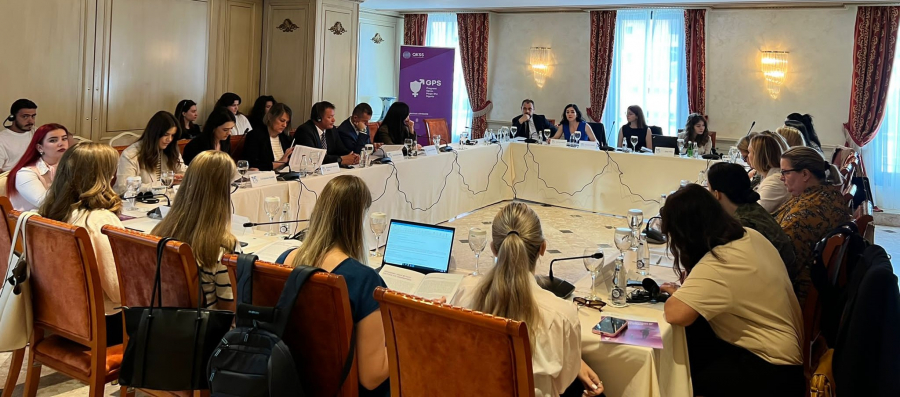26/06/2023

Prishtina, June 26, 2023: The Kosovar Centre for Security Studies (KCSS) has recently released a new publication, authored by Dea Fetiu and Dorjeta Rukiqi, which examines the agency and working environment for women in Kosovo's security sector, as well as the institutional capacities of security institutions in addressing gender-specific challenges.
The report was presented during a comprehensive roundtable discussion organized by KCSS, with the participation of the Kosovo Security Forces, the Kosovo Police, the Police Inspectorate, the Academy for Public Security, the Ministry of Defence, the Ombudsperson, the Gender Equality Agency, as well as representatives from NATO, OSCE, and other international and local organizations.
During the opening of the roundtable discussion, KCSS researcher Adelina Hasani emphasized the importance of the research, stating, "The study provides significant findings regarding women's agency in the security sector and gender integration within the sector. Additionally, the document offers crucial insights into the challenges faced by women within the security sector. Given the low representation of women in these institutions, it is essential to understand the underlying factors that hinder their participation and advancement."
These findings are vital for identifying the key barriers that impede the increase in women's representation in the security sector. According to Dea Fetiu, "The low application rates of women to join security institutions primarily stem from the perception that this field is predominantly for men. This perception affects women working in this sector, who encounter a patriarchal mentality that undermines their knowledge and expertise compared to their male counterparts. Furthermore, women often face pressure to conform to societal expectations, risking their personal freedoms and authentic selves."
The report highlights several important issues faced by women in the security sector, including the underrepresentation of women in managerial positions and the harmful effects of prejudice and perceived gender roles on their ambitions. The undervaluing and differential treatment of women within the sector hinder their career progression and self-esteem, creating barriers to assuming increased responsibilities and leadership roles. Additionally, gendered domestic responsibilities pose substantial challenges for women in attaining managerial positions and pursuing extensive training programs necessary for career advancement, particularly in the military.
Furthermore, the report reveals a trend of underreporting incidents of bullying, harassment, and discrimination among women in the security sector. The lack of a reporting culture and non-confidential reporting mechanisms discourages women from coming forward and addressing such issues.
Additionally, there is a need to address issues of gender equality within the Kosovo Police (KP). Through continued collaboration and efforts, it is hoped that positive changes will be made to enhance women's participation and advancement, fostering a more equal and diverse security sector in Kosovo.
Kosovar Center for Security Studies (KCSS) is supported by the Kosovo Foundation for Civil Society (KCSF) program 'EJA Kosovo', co-financed by the Swiss Agency for Development and Cooperation (SDC), Sweden and the Government of the Grand Duchy of Luxembourg.